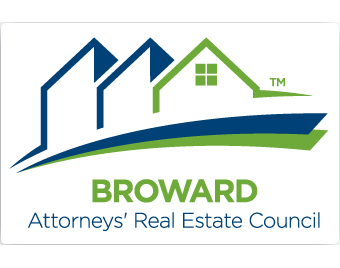Long-term care costs are astoundingly expensive. According to the latest data from the Florida Health Care Association (FHCA), the median cost of a private room in a nursing home now runs into the six figures. As Medicare provides very little long-term care coverage, it is imperative that seniors in Florida use the right Medicaid planning strategy to protect their assets. Here, our Fort Lauderdale estate planning attorney explains the key things to know about maximizing your asset protection through proactive Medicaid planning.
Medicaid Covers Long-Term Care, Not Medicare (Why it Matters)
Knowing how expensive long-term care costs can be, you probably have an important question: Can a senior citizen in Florida access public benefits to help cover long-term care costs? The answer is “yes”—but only when certain financial requirements are met. Here is the big issue:
Understanding the distinction between Medicare and Medicaid is absolutely crucial for senior citizens who are trying to make viable financial plans for their future long-term care needs.
Medicare, a federal health insurance program, primarily covers only hospital stays, doctor visits, and short-term rehabilitation services. It does not cover long-term care care in nursing homes or assisted living facilities. Why does that matter? Every senior citizen can qualify for Medicare—but they cannot rely on Medicare to provide coverage for long-term care.
Medicaid provides long-term care coverage. However, qualifying for Medicaid is not automatic. For many seniors in Florida, Medicaid eligibility is by no means straightforward. The program has both strict income limits and strict asset limits. Without proper planning, seniors in Florida may find themselves exposed to the high costs of long-term care—which can quickly deplete their savings.
What You Need to Know About the Medicaid Spend Down Requirement
The Medicaid spend-down requirement is one of the most important concepts that senior citizens in Florida need to be aware of. If your income or your assets exceed Medicaid’s eligibility limits, you will be required to”spend down” your excess assets to qualify for Medicaid benefits. That does not mean indiscriminate spending; Medicaid has strict guidelines on acceptable expenditures.
You may be able to spend down to cover certain costs—such as paying off debts, making home improvements for medical needs, purchasing exempt assets, and prepaying funeral expenses. However, you cannot simply give money to your loved ones to meet the requirements. Anything that is remaining about the asset limit after you follow the spend-down rule will be used to pay for your own long-term care before Medicaid steps in.
Key Point: If a senior’s assets and income exceed Medicaid’s resource limits, they generally will not qualify for Medicaid coverage for long-term care. They will usually be required to pay for their own care. Medicaid will only step in once those financial resources have been exhausted.
How Proactive Medicaid Planning Can Protect a Senior Citizen’s Assets
As stressful and confusing as it can be for seniors and their families to navigate long-term care, there is some good news: Proactive planning can help to protect assets. A top-tier Florida estate planning attorney who has experience handling Medicaid planning can help you determine the best course of action. You should start Medicaid planning at least five years in advance of actual long-term care needs to ensure you have every option on the table. Strategies include:
Why Trust Our South Florida Estate Planning and Elder Law Team
Medicaid planning is exceptionally complicated. If you have questions about your options or you find the process confusing, you are certainly not alone. At The Law Offices of Odelia Goldberg, we are here to help you find the solution that works best for your specific situation. As a top-rated estate planning and elder law firm, our Fort Lauderdale Medicaid planning lawyer has the skills, experience, and legal expertise to help you put the best asset protection strategy in place.
Contact Our Fort Lauderdale Asset Protection Lawyer Today
At The Law Offices of Odelia Goldberg, our Fort Lauderdale estate planning attorney has extensive experience helping people and families protect their assets. If you have any questions about Medicaid planning, please contact us today for a fully confidential, no-obligation initial consultation. With an office in Fort Lauderdale, we provide estate planning services throughout South Florida.







The information on this website is for general information purposes only. Nothing on this site should be taken as legal advice for any individual case or situation.
This information is not intended to create, and receipt or viewing does not constitute, an attorney-client relationship.
© 2025 The Law Offices of Odelia Goldberg. All Rights Reserved. Privacy Policy. Web Development by IWD Marketing